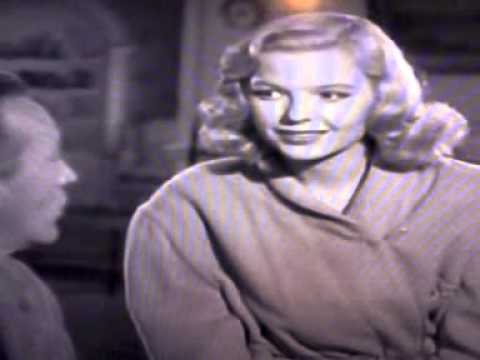Happy Friday everyone! It’s my last day as your tour guide, and since I’ve been in rehearsals for two separate Christmas shows, I figured I would end with a Christmas song. Not only is the song one of my favorite holiday tunes, but it’s also the best-selling single of all time. I’m, of course, referring to Irving Berlin’s “White Christmas”.
I would be lying if I said I didn’t think my selection was a little cliché. I love Christmas music and have a large catalogue that ranges from the hits to very obscure compositions that most likely only appear on my iPhone. But then I sat back and thought about what one song truly captures that time of year to me. And the choice was easy. Written by the Jewish-American Berlin in 1940, it was first sung by Bing Crosby on The Kraft Music Hall. It went on to appear in the film Holiday Inn, won the Oscar for Best Original Song, and inspired the popular the film that shares the song’s name. It’s been noted that the song’s popularity sprang from the longing to be somewhere else for the holidays, a sentiment easily shared for listeners during WWII. The song would go on to sell 50 million copies.
When I was young, my family would always watch White Christmas at the start of the Christmas season. It always felt that was the moment that it was “officially” Christmas time. Now, that moment has changed for me. For the past eight years, it’s been around 10pm on a Monday night at 105th and Broadway. A Goyishe Christmas to You! has a very special place in my heart.It was the first thing that my wife saw me perform in, and even though we no longer live in NYC, it’s one of our favorite holiday traditions. I relish the performance each year, and love seeing my fellow performers who, although we only see each other about once a year, have become very close to me.
At the end of the evening, we all gather at the front of the piano and get to sing Mr. Berlin’s song. Then something magical happens. We hum in harmony and it feels as if, just for the briefest of moments, the rest of New York is silent. To me, then is it Christmas.



Here I try to explain the surprise I felt when I first realized that “White Christmas” ends with a quotation – presumably of what is written in the Christmas cards. But first a word about the intricacy underpinning the lyric’s simplicity.
The rhyming subject-verb couplings, “the treetops glisten” and “children listen,” both evoke perceptual experience. But in one the grammatical subject refers to the (non-human) object of (visual) experience; in the other to the (human) subject of (aural) experience. A dreamlike timelessness is conjured by these present-tense clauses describing Christmases whose pastness is indicated by the only non-present tense finite verb – in the phrase “used to know.” The almost onomatopoeic, phonetically linked words “Christmas,” “glisten,” and “listen” evoke snow’s crystalline stillness and the bells’ tinkle. “Listen” hints at silence, being first heard (for a moment) as a stand-alone intransitive verb with no object, paralleling its rhyme word “glisten.” Then it is followed by a transitive verb with a similar meaning, the verb “to hear,” in effect providing an object. “Listen to hear,” in its unusualness – compared with “strive to hear” – foregrounds “listen” (already emphasized by rhyme), intensifying the quiet attentiveness.
Suggesting a move to modernity (in America sending Christmas cards increased greatly after 1915), a temporal arc from past (“Just like the ones I used to know”) to present (“With ev’ry Christmas card I write”) to future (“may all your Christmases be white”) transforms a past-oriented dreaming into a future-oriented dreaming. The Christmas card reference also hinges a shift from self to other: from clauses governed by “I,” to clauses governed by “your days” and “your Christmases.” The final two lines, the lyric’s only formal couplet, differing in prosody and rhyme from the first stanza’s ending, has an independence and self-sufficiency registered by melody. It hints at melancholy. The epithet “merry” qualifies not the proper noun “Christmas” – which is what it conventionally qualifies – but the less weighty noun “days,” with its suggestions of transience. The contrasts and parallels of the “days” and “Christmases” associate Christmases with night. And the word “night,” suggested by the couplet without appearing in it, rhymes with the couplet’s rhyme words, “bright” and “white.”
It might be argued that the shift to quotation has value, adding to the ending’s transformations; that the shift to the written word – which, more than speech, evokes permanence and absence – accords with the ending’s future orientation and its melancholy. Self-quotation involves a self-distancing, sublimating yet intensifying emotion. The coinciding of the addressees of the couplet and those of the cards makes for simplicity yet fuses the particular and the universal. For if the addressees are in the first instance the addressees of the cards, at another level is a more universal addressee, a general You that embraces the song’s real-world audience. Seeing the couplet as a quotation creates a mise-en-abyme effect – an effect suggesting reflectiveness and mystery.
But these features are still there if the ending, unlike what precedes it, is understood as simply marked by (without quoting) the written word of the Christmas cards – or by the thought of this word. And there is awkwardness in the picture of the speaker writing exactly the same message in numerous Christmas cards and quoting unprompted this message verbatim. To see the self-quotation as a coping strategy exaggerates the pain; not seen this way, it smacks of self-absorption. And the couplet is an odd Christmas card message, not pertaining to the coming Christmas in particular. “May all your Christmases be white” needs the meaning-conferring context of the whole song, which – by associating white Christmases with our deepest yearnings, with home, childhood, a fusion of nature and tradition – makes symbolic the wish and the very phrase White Christmas. Situated in the first instance not in the lyric’s hitherto-used direct speech but in a quotation of a brief written text, the wish is separated also from the speaker’s dreamy inwardness that confers a kind of poetry on it. The oddities detract, I think, from the song’s haunting strangeness. Singers never signal this kind of quotation.
So I find myself wishing that the quotation is barely quotation; that it is not of the inscription in the cards but of the inner thought that accompanies the writing – a past thought that becomes a present thought. The self-quotation would thus become so minimal as to avoid self-indulgence; the wish is no longer bound by focus on the coming Christmas, nor so separated from the speaker’s inwardness. I can still dream of the “White Christmas” I used to know.